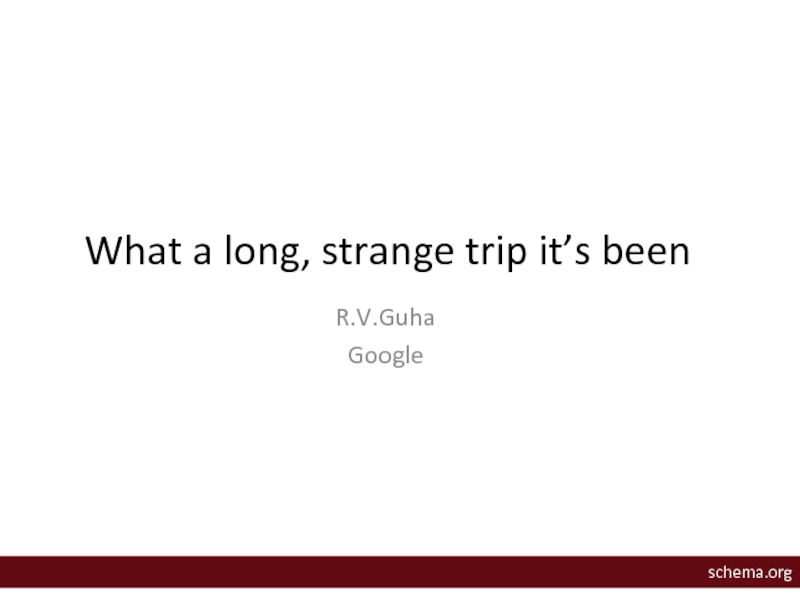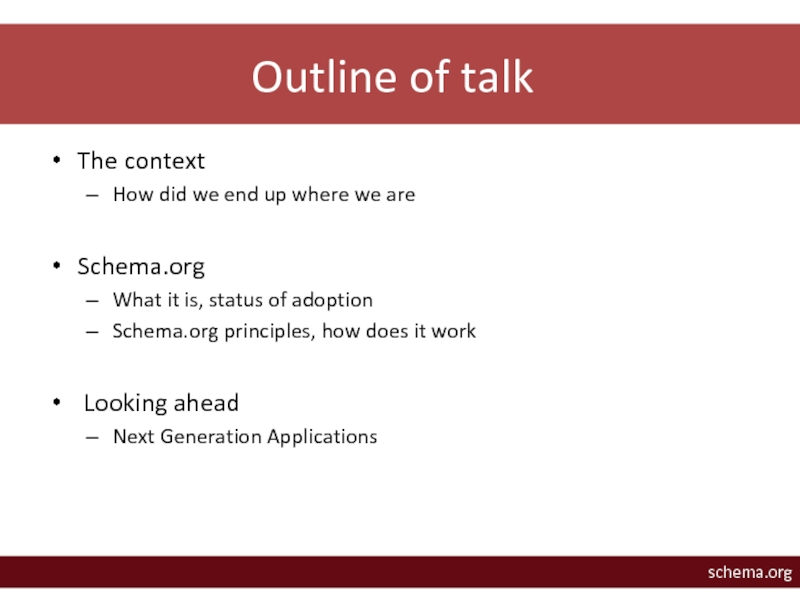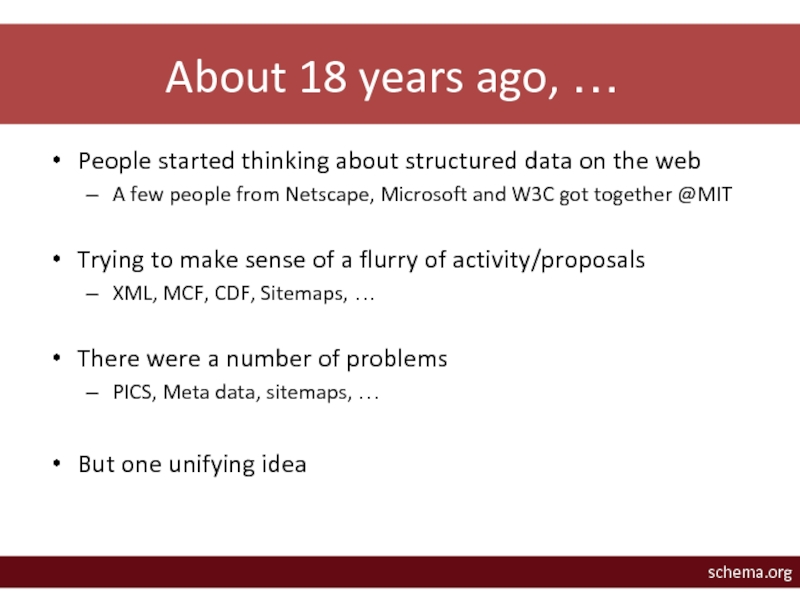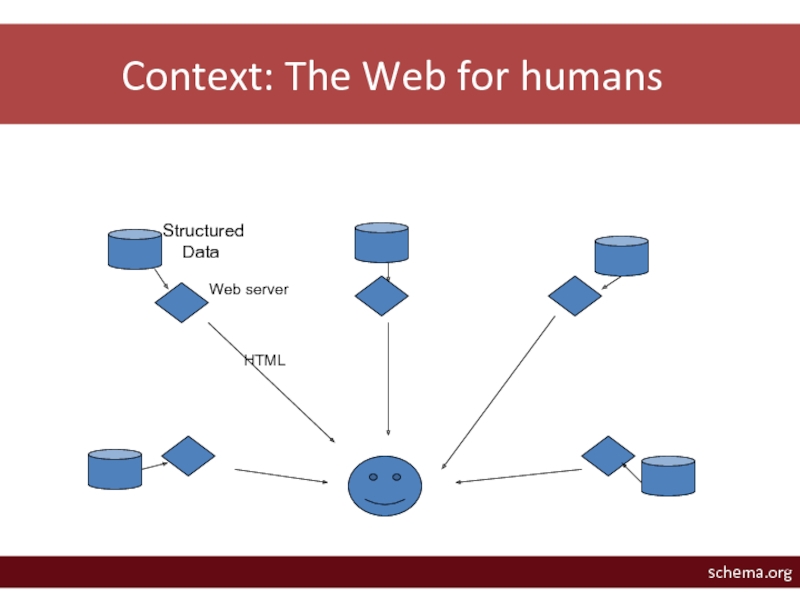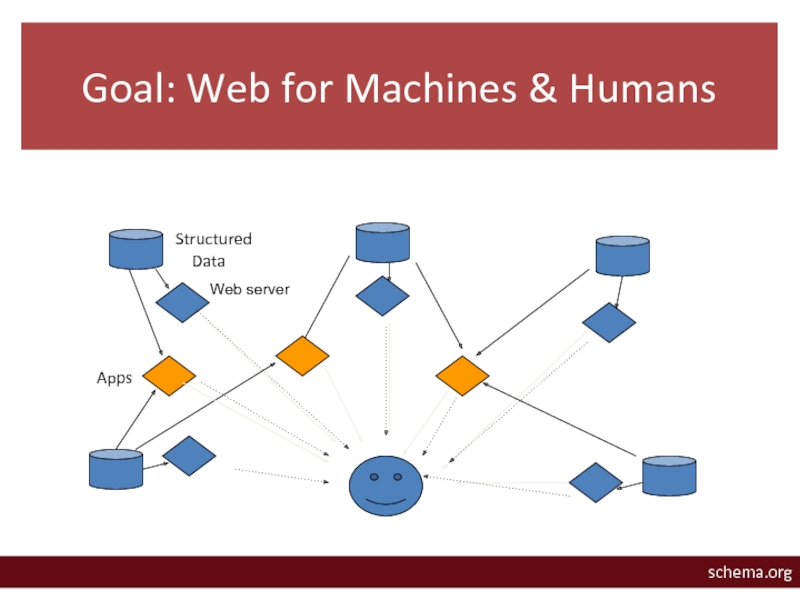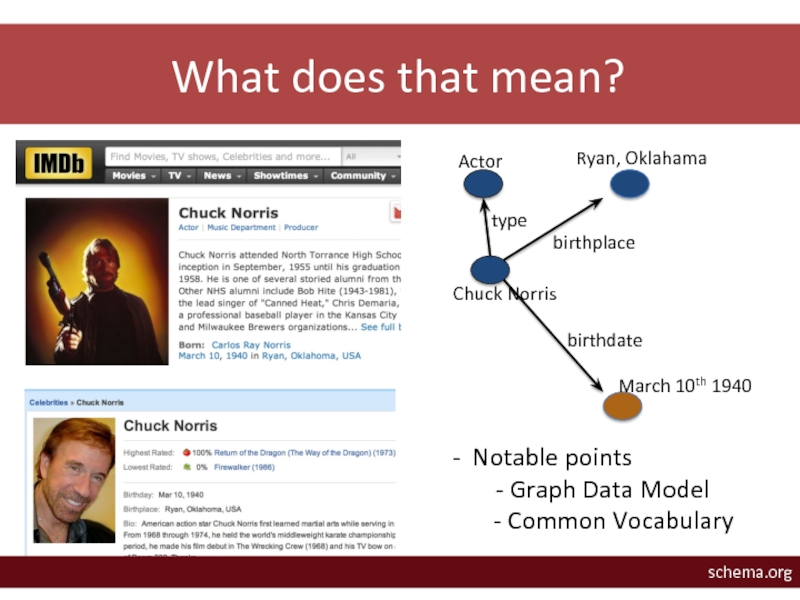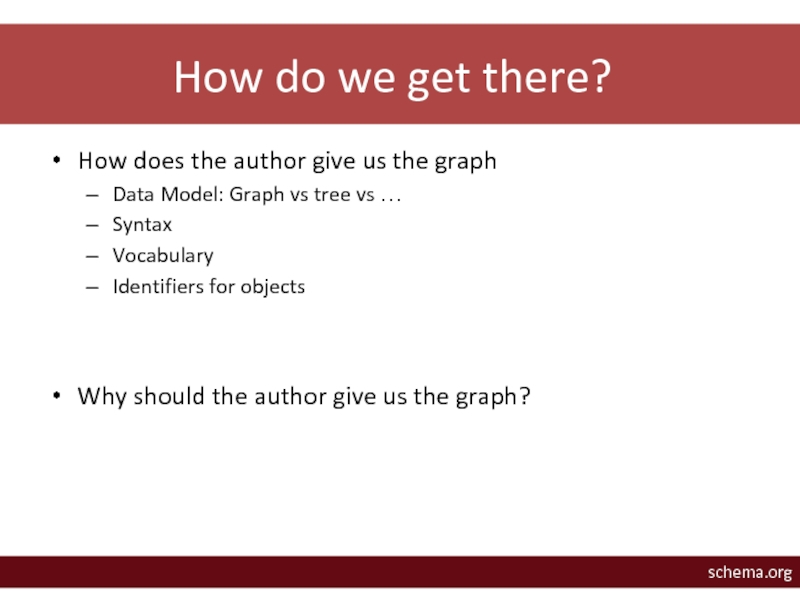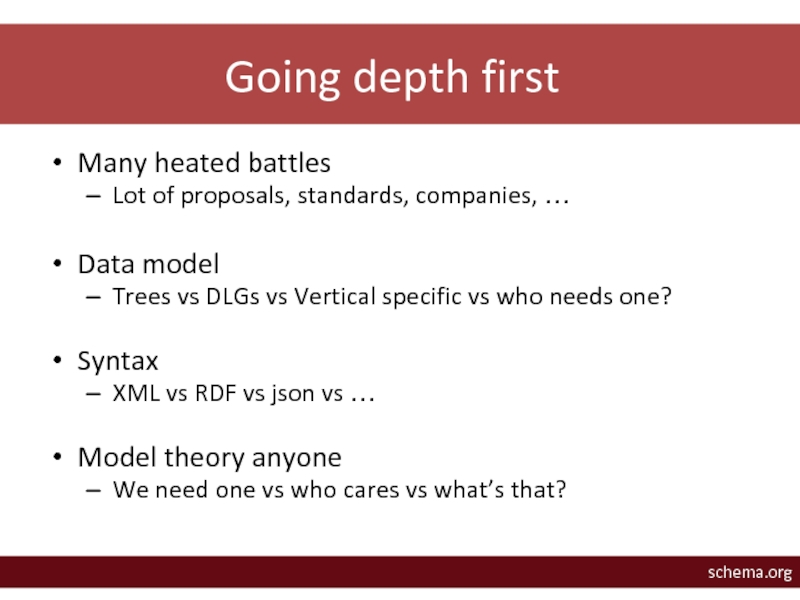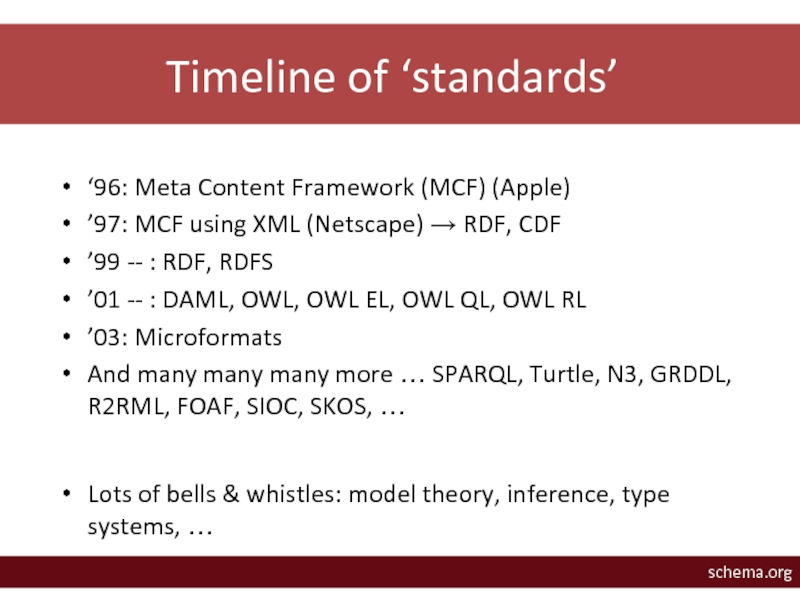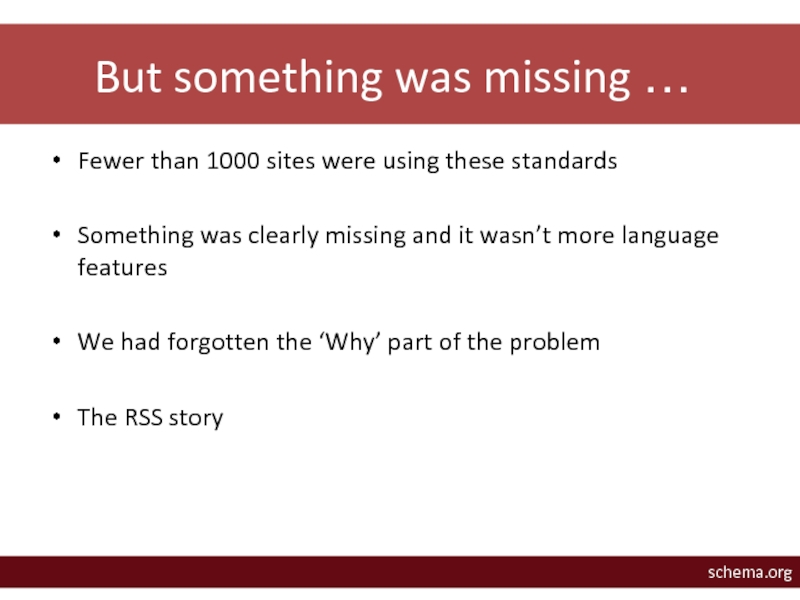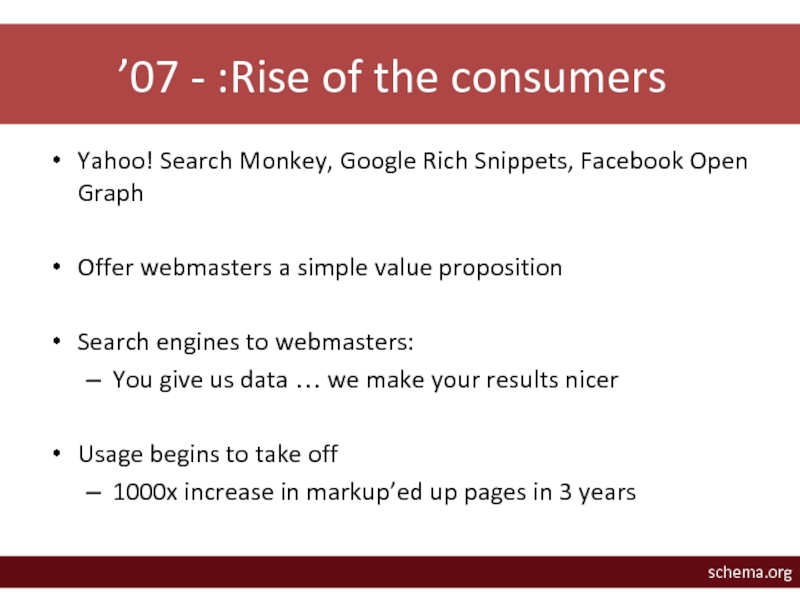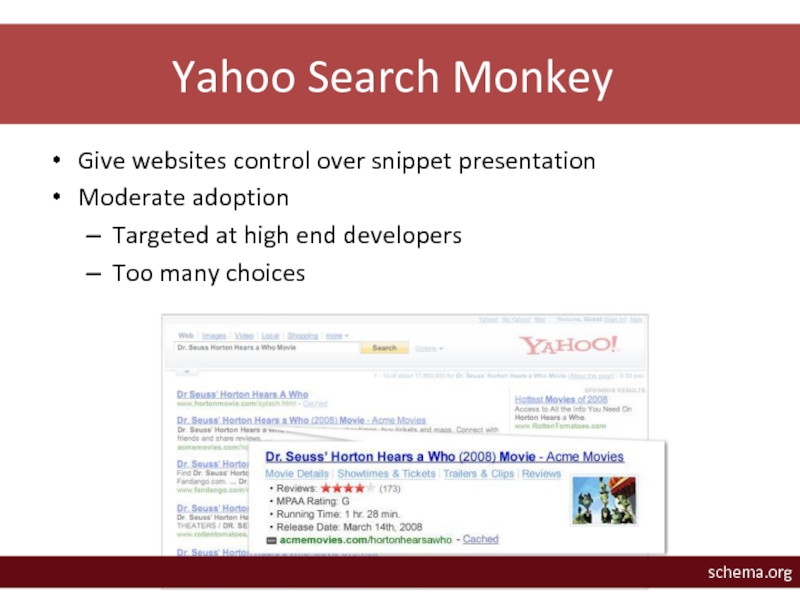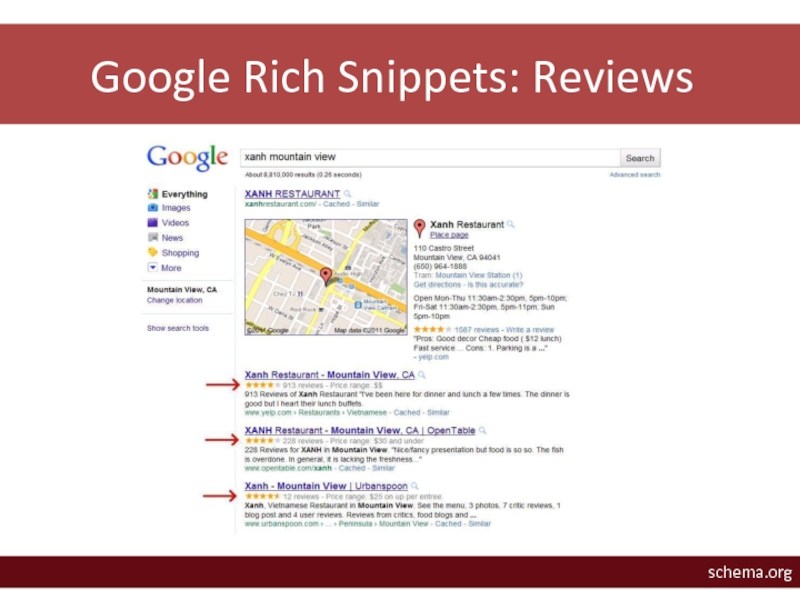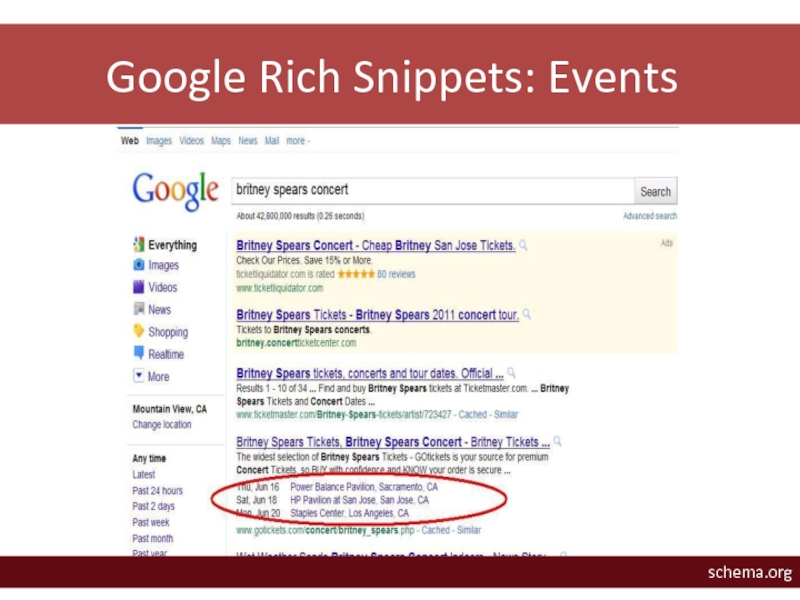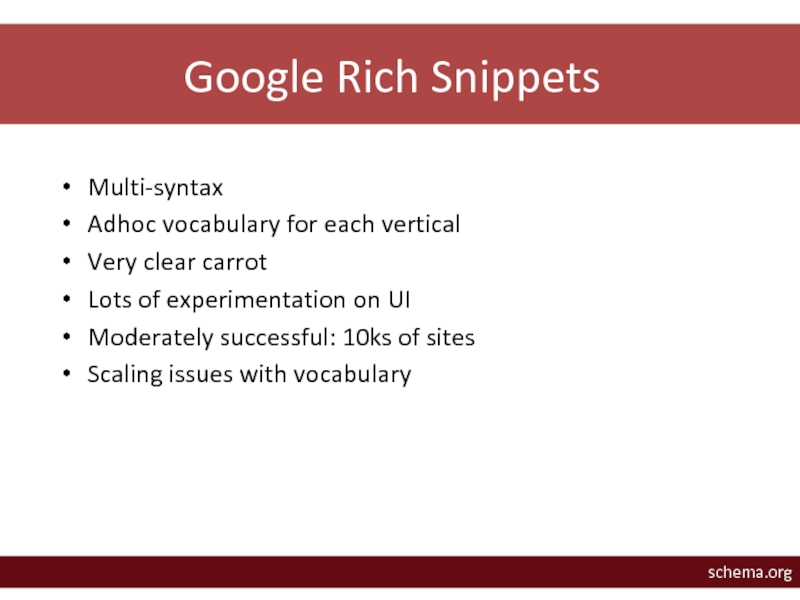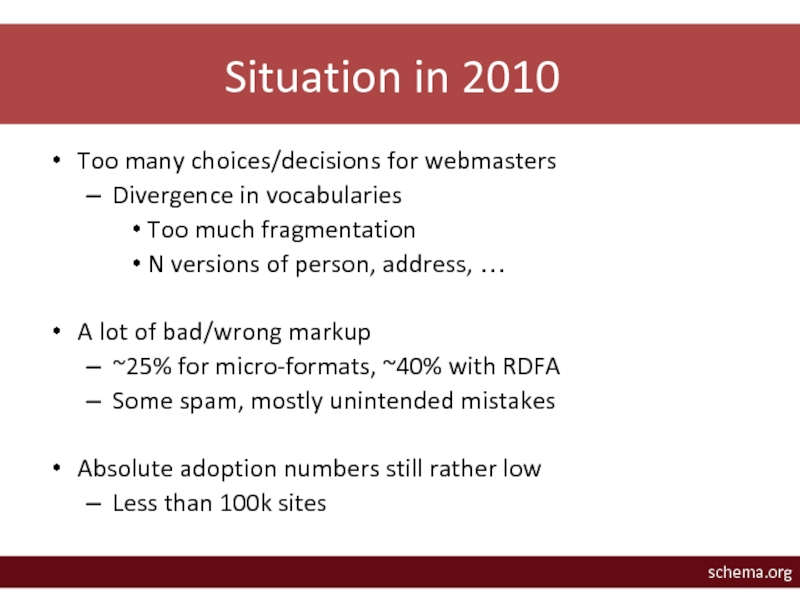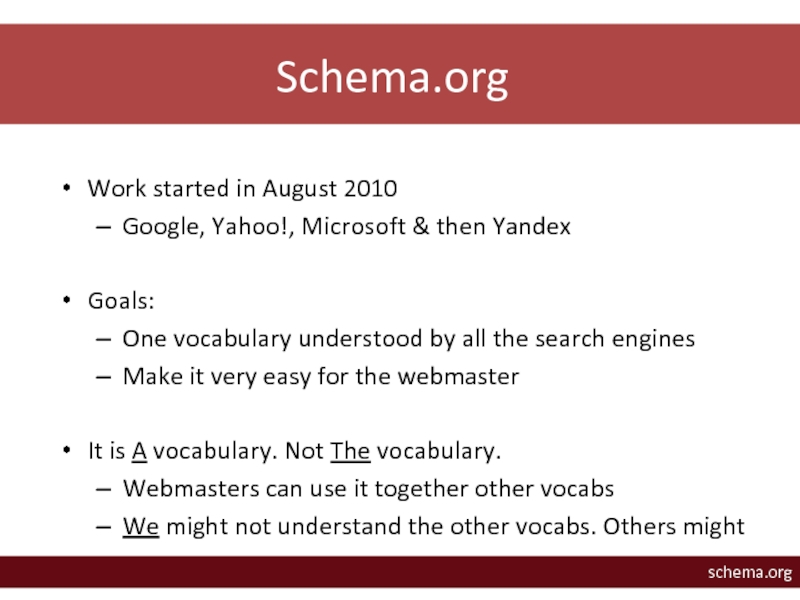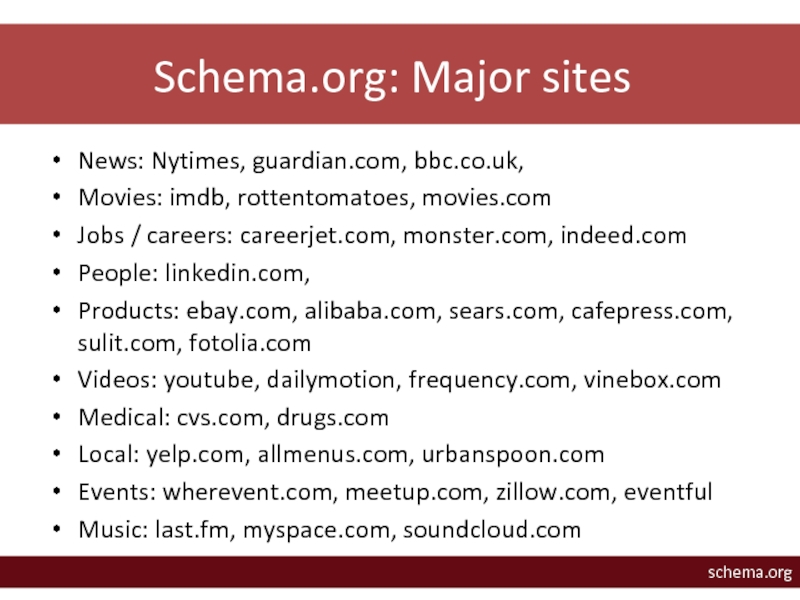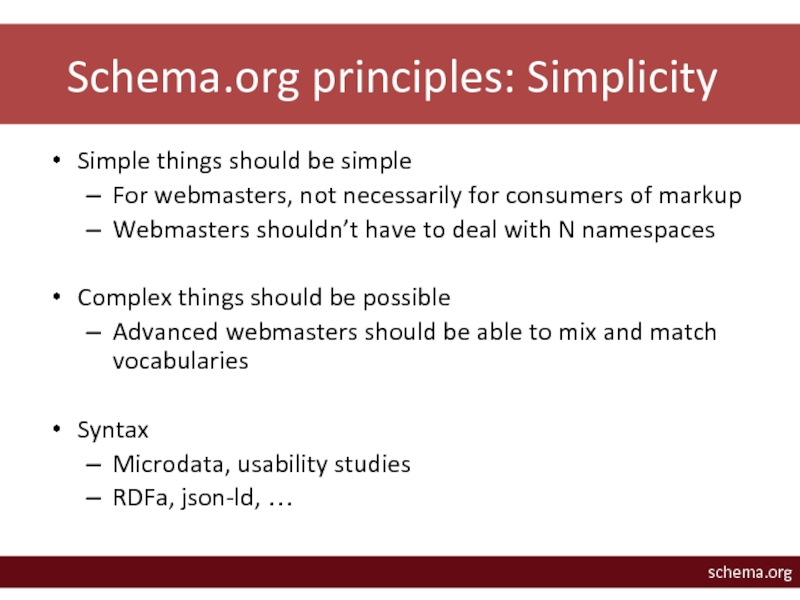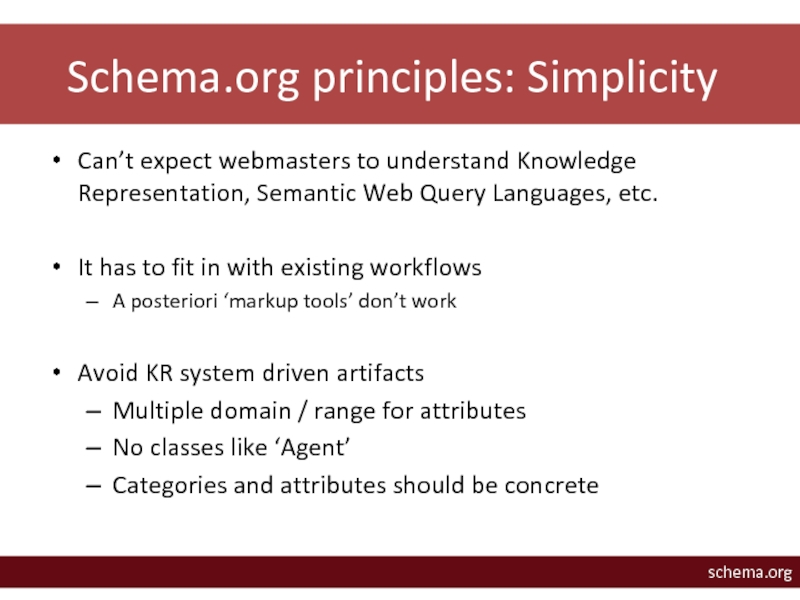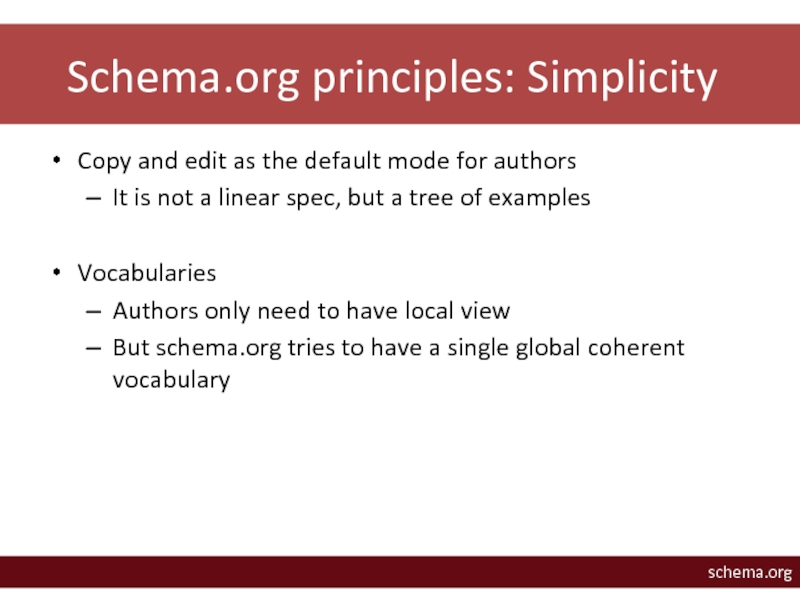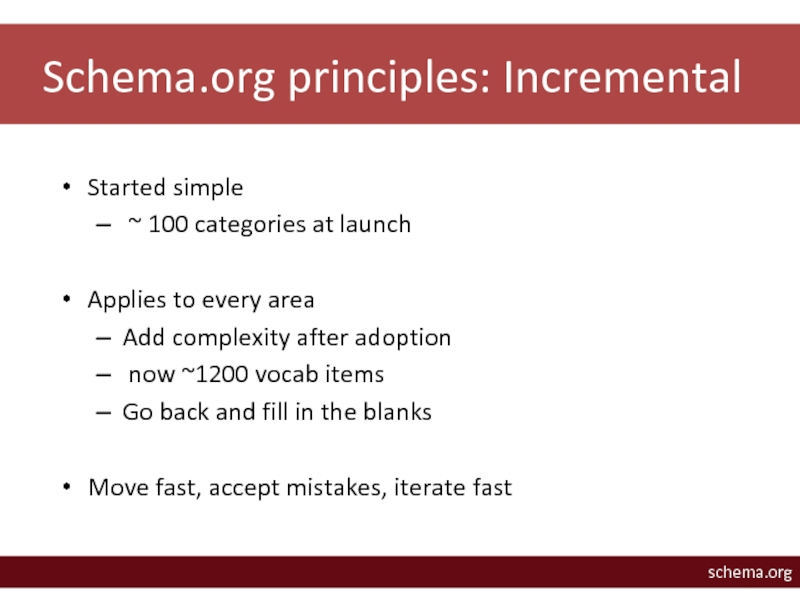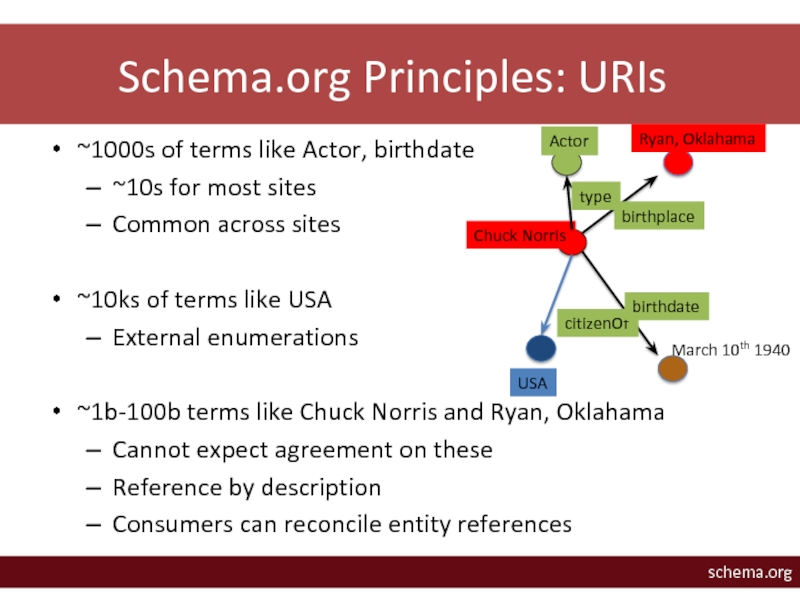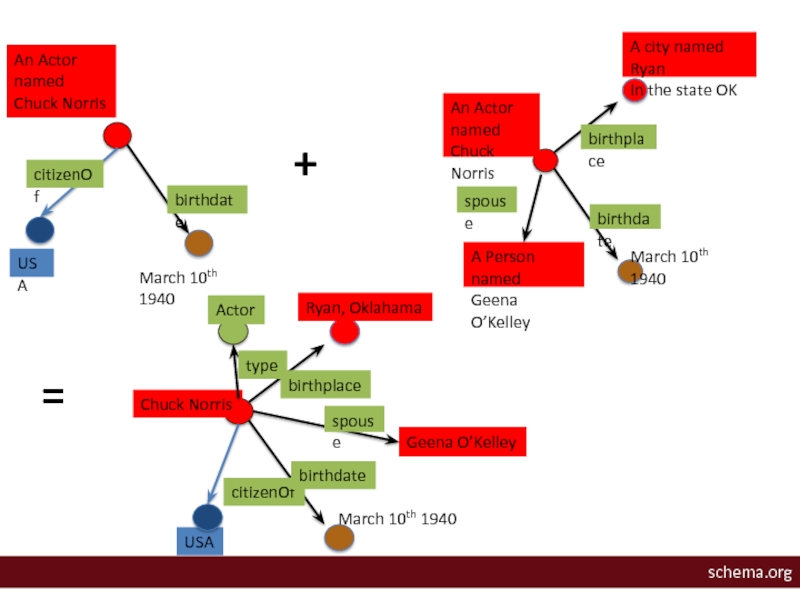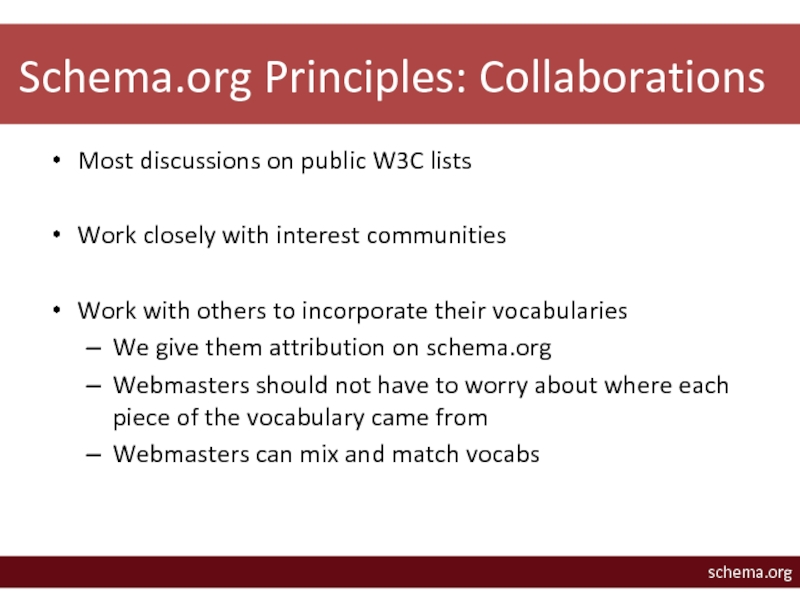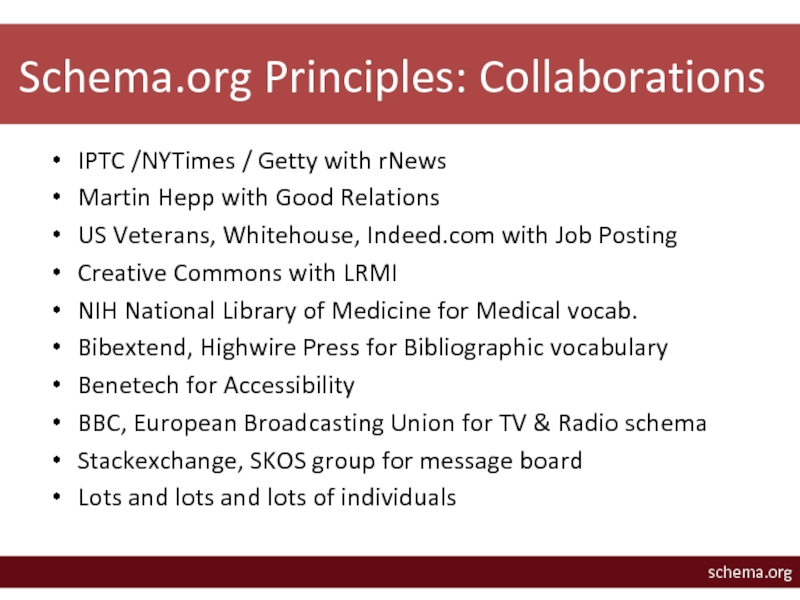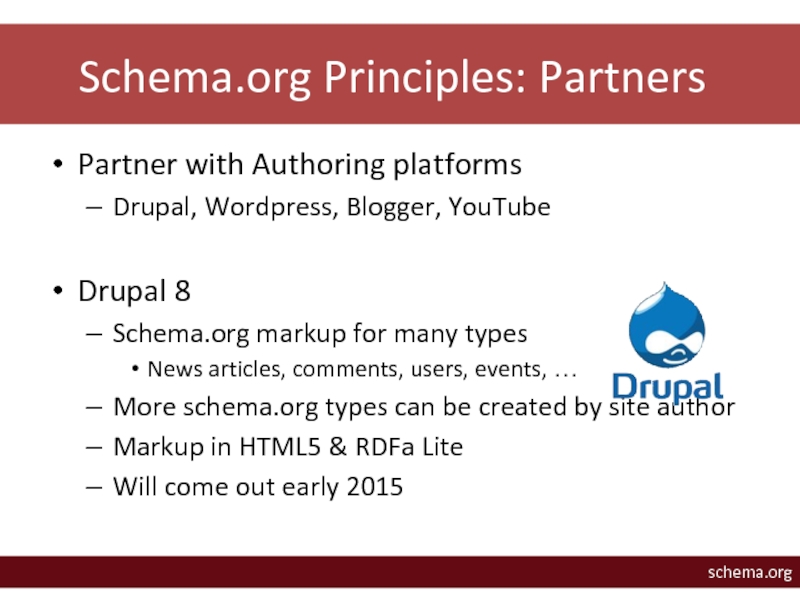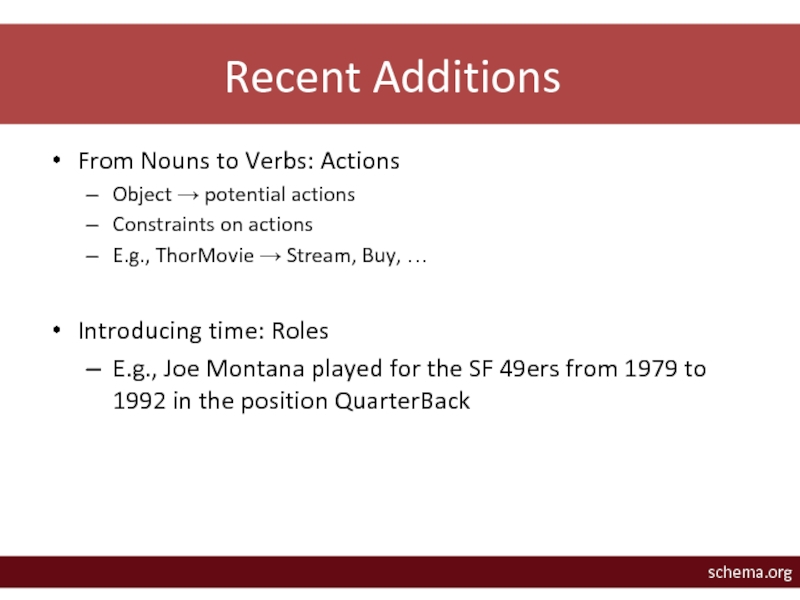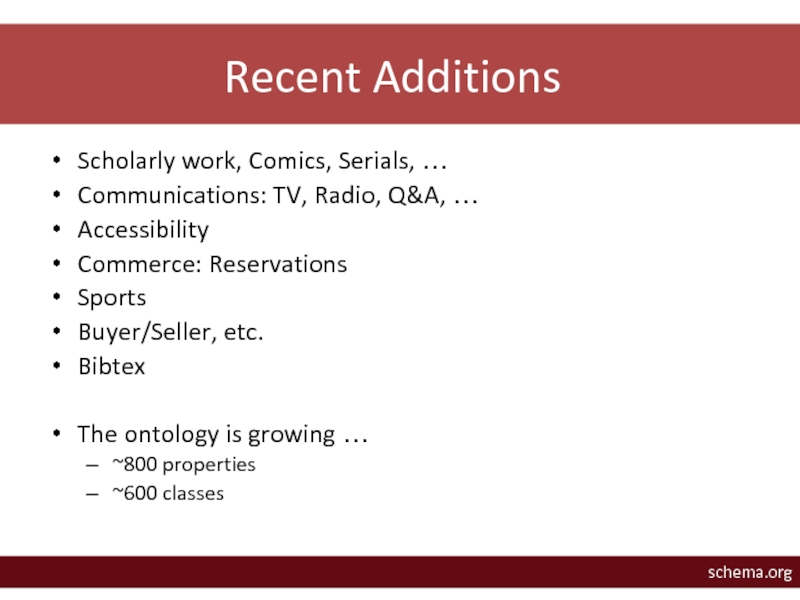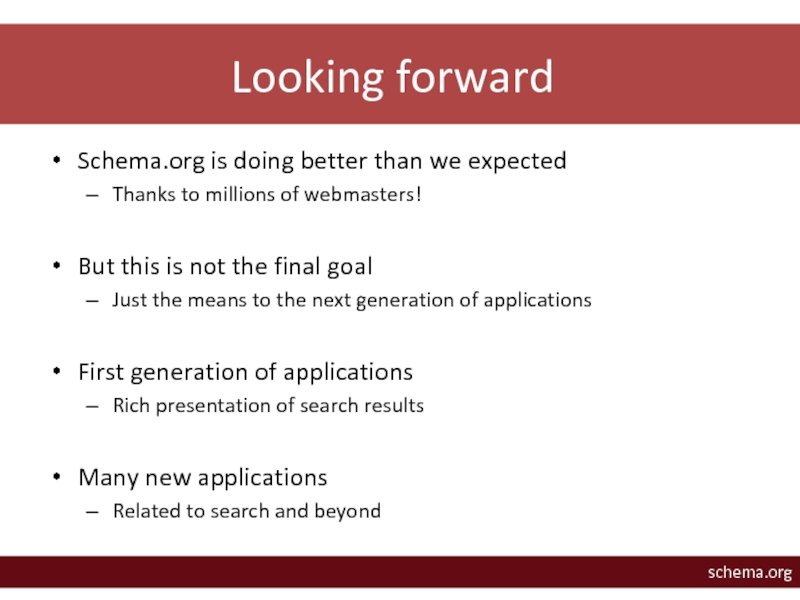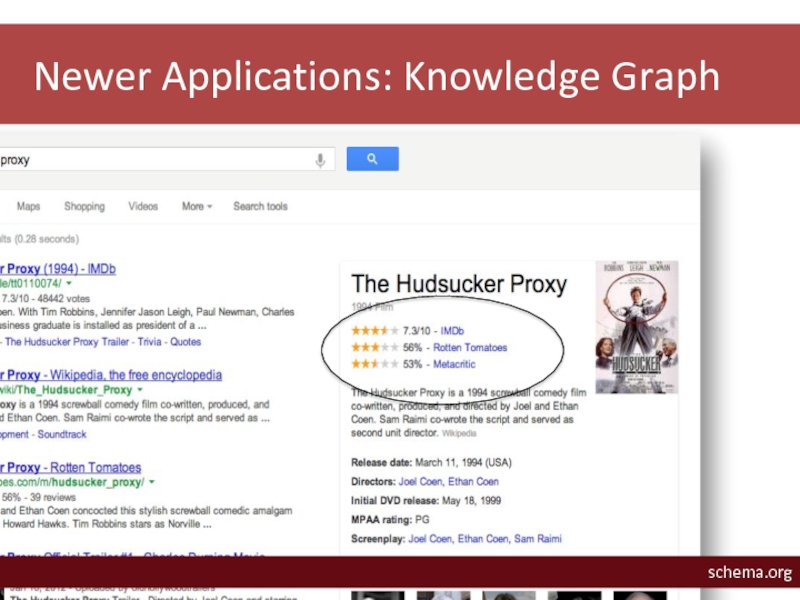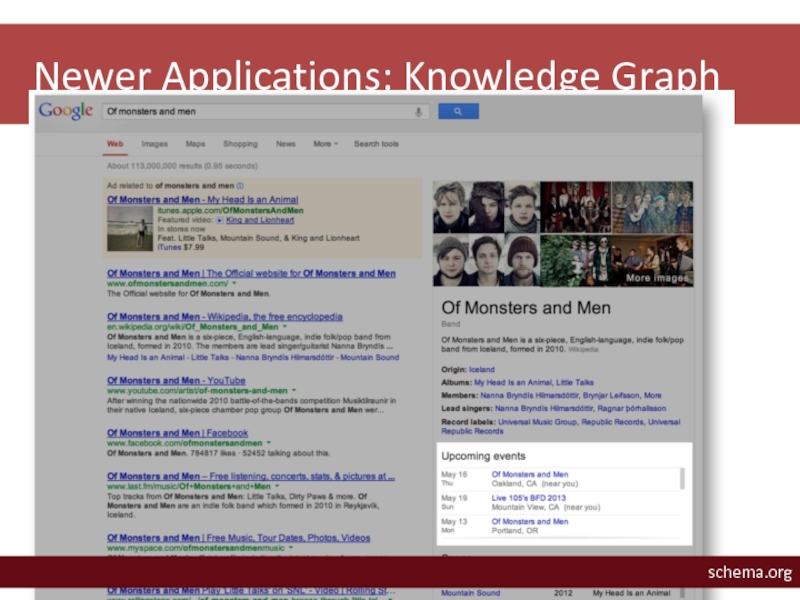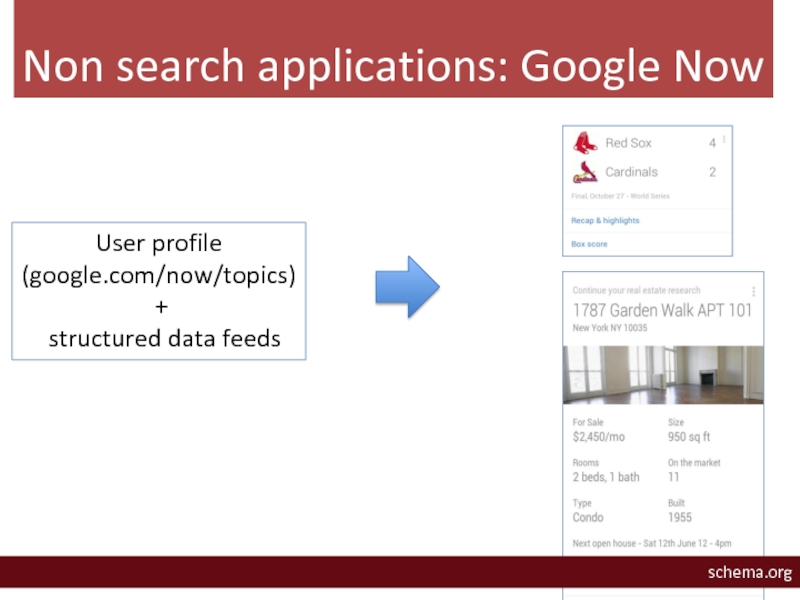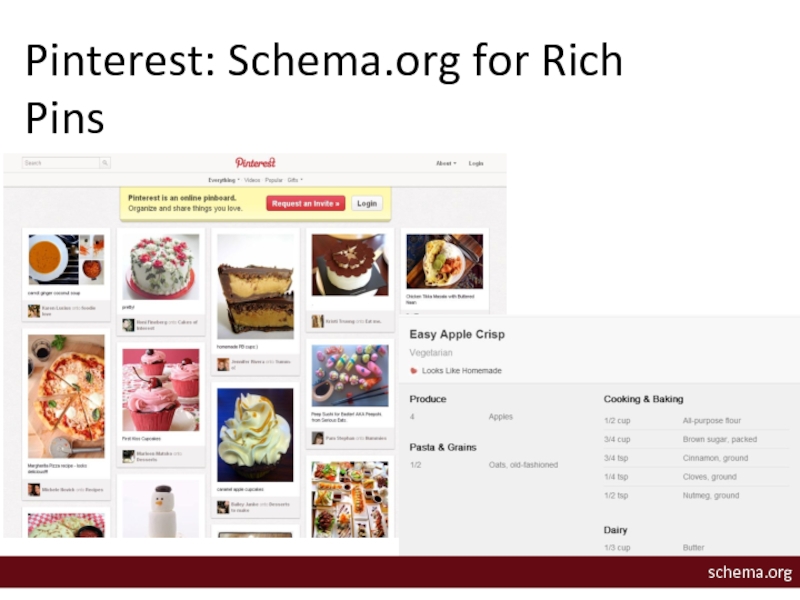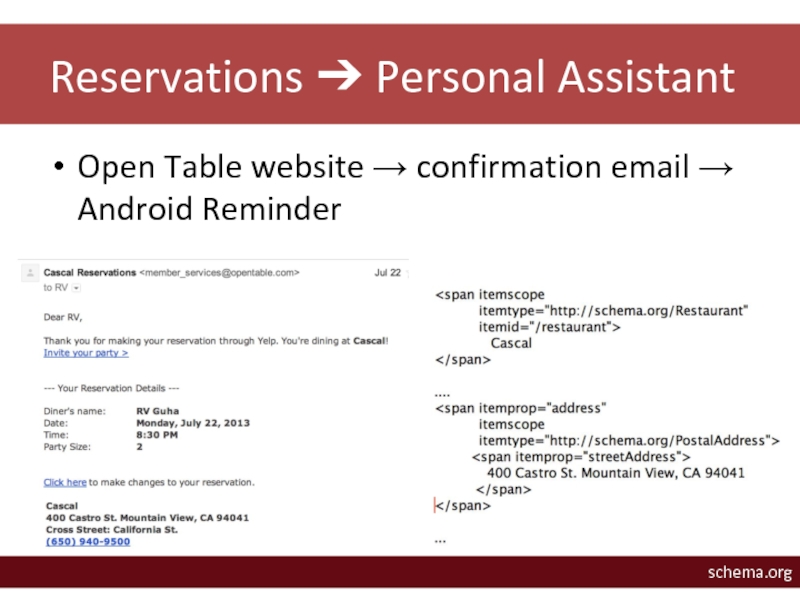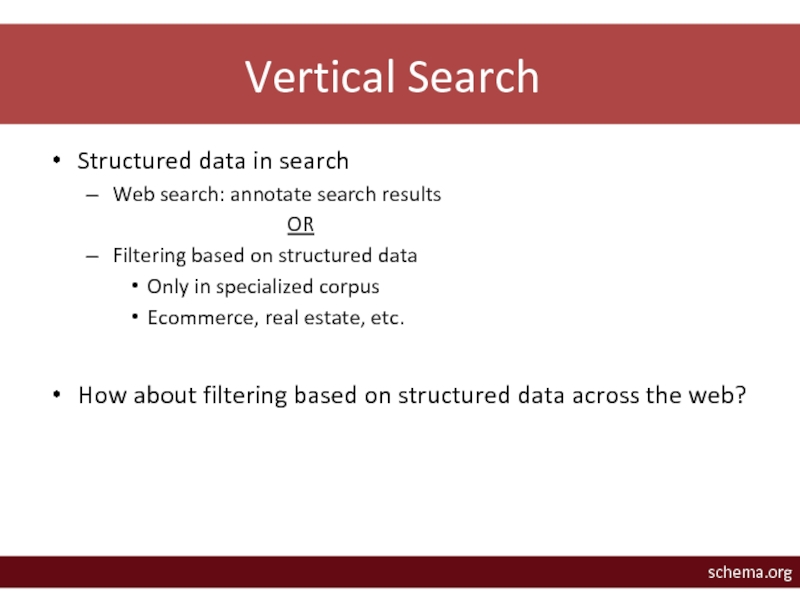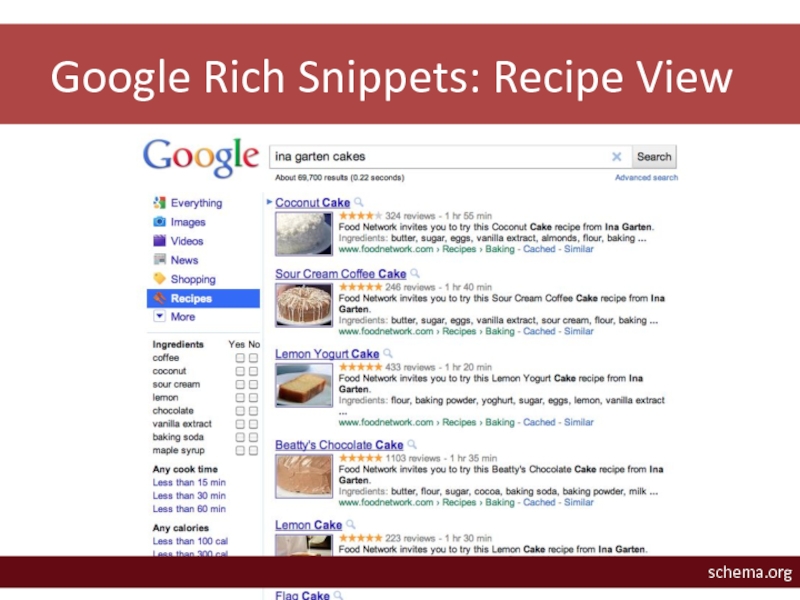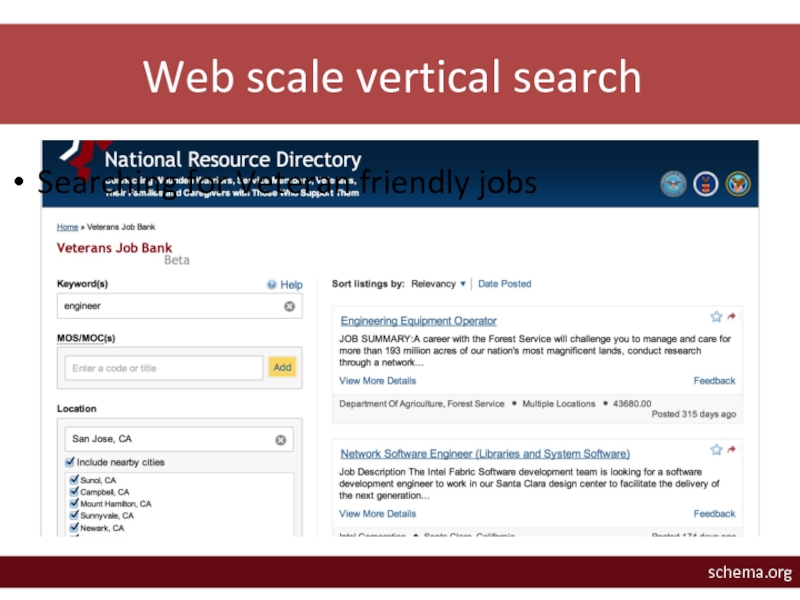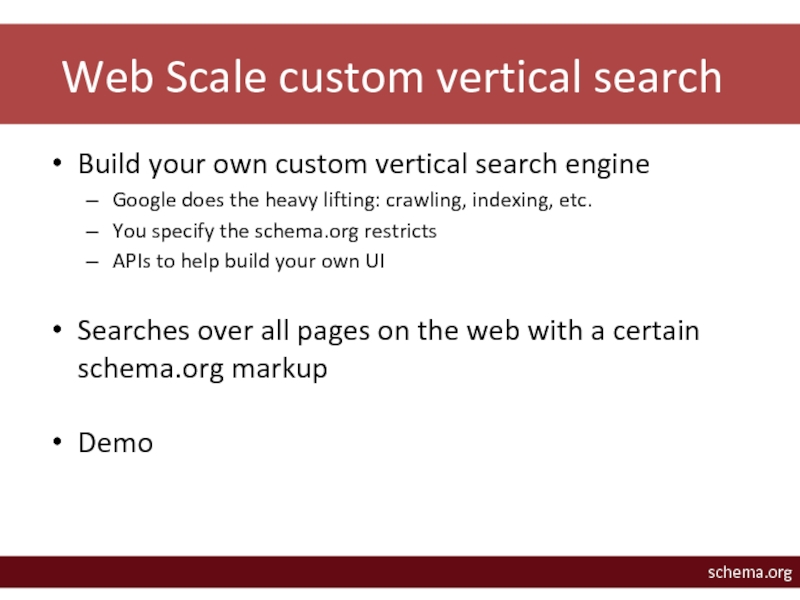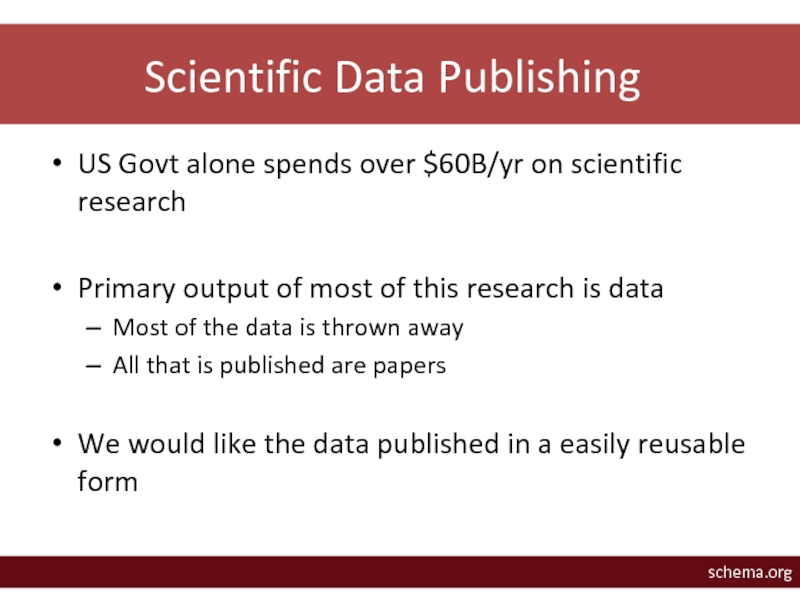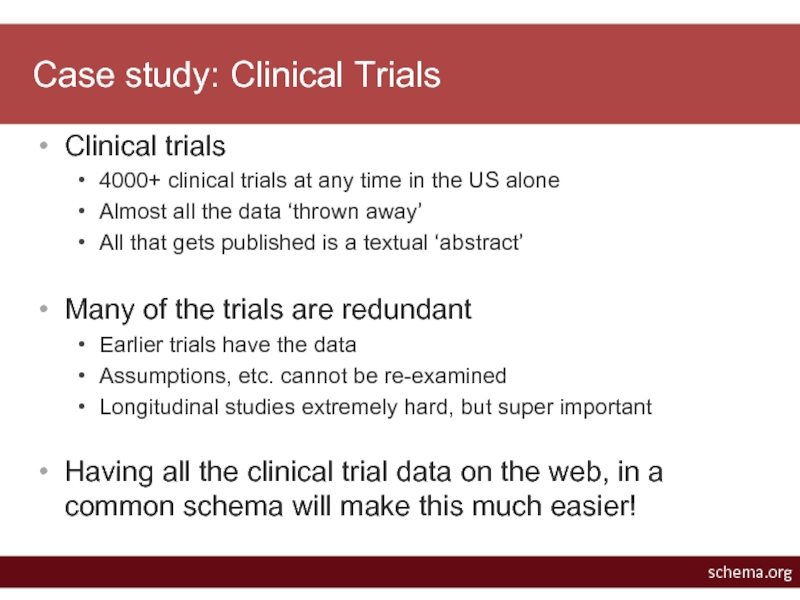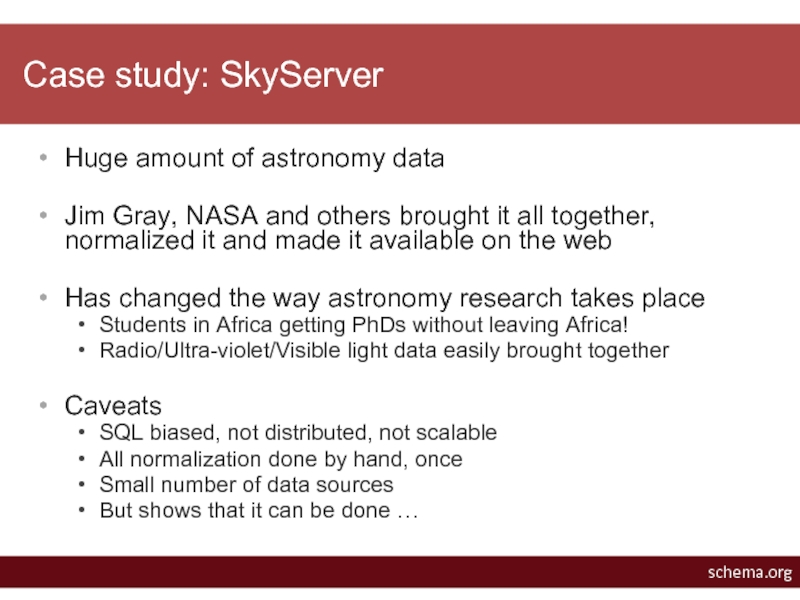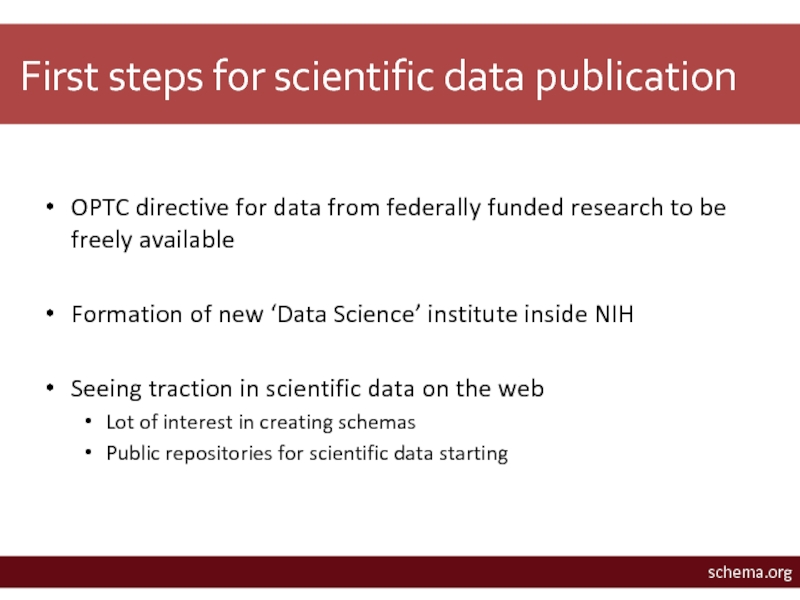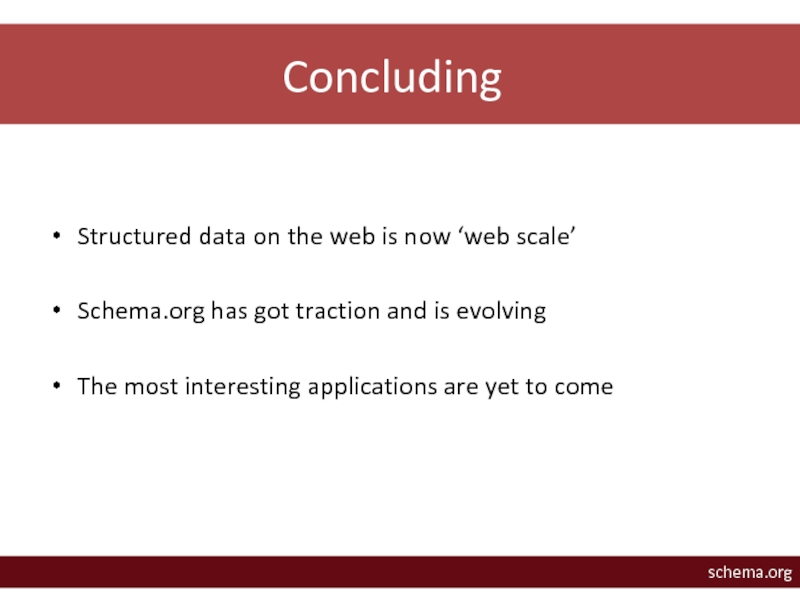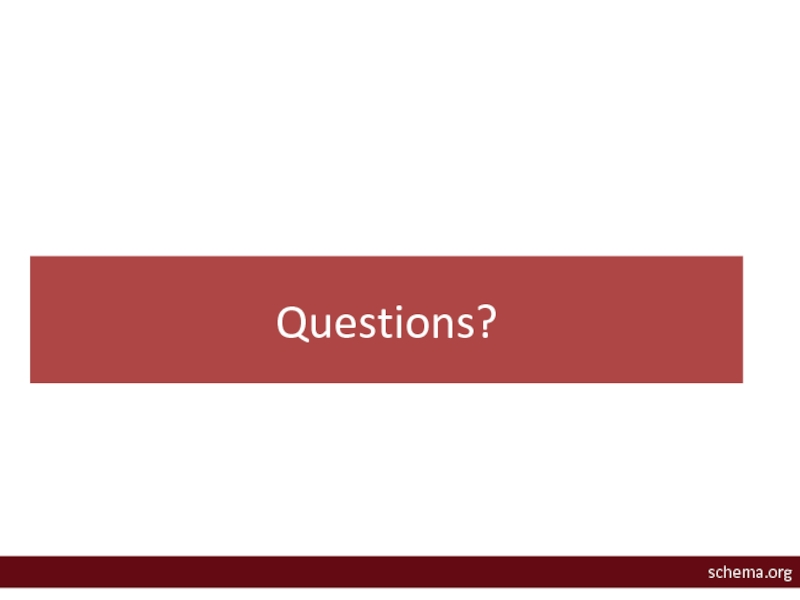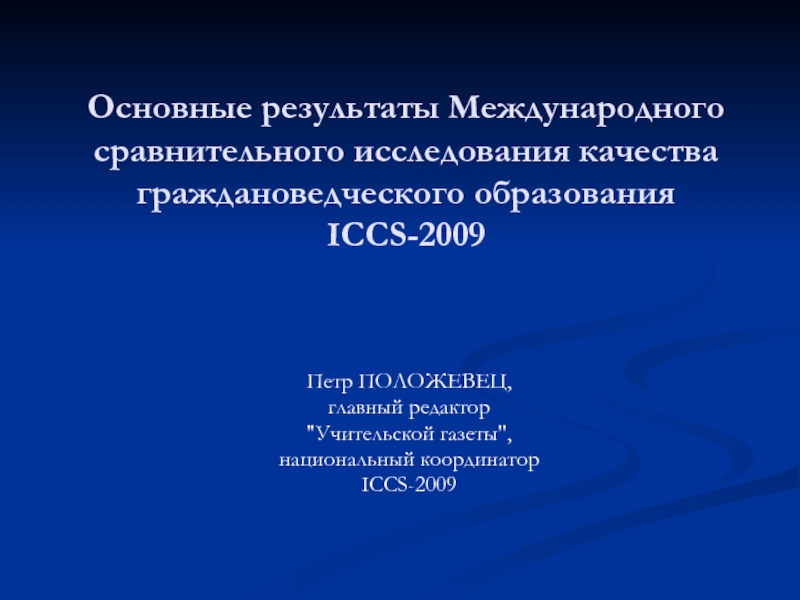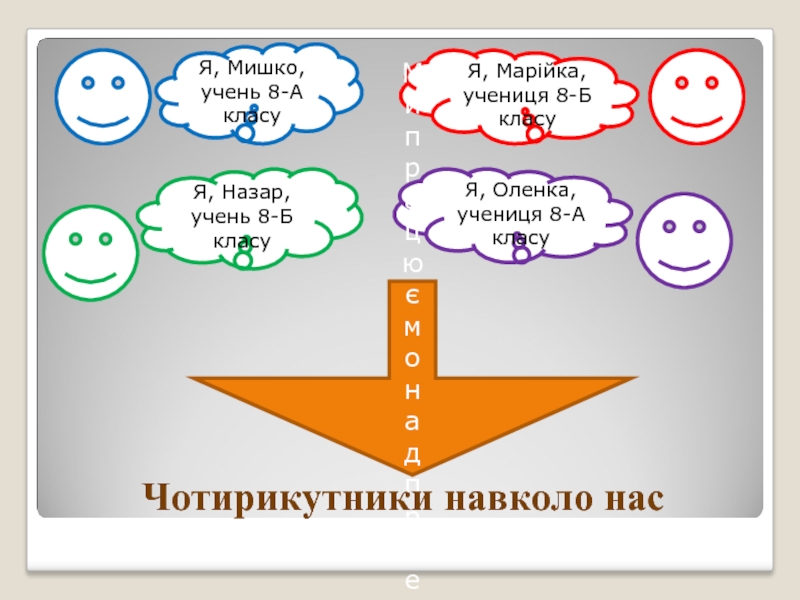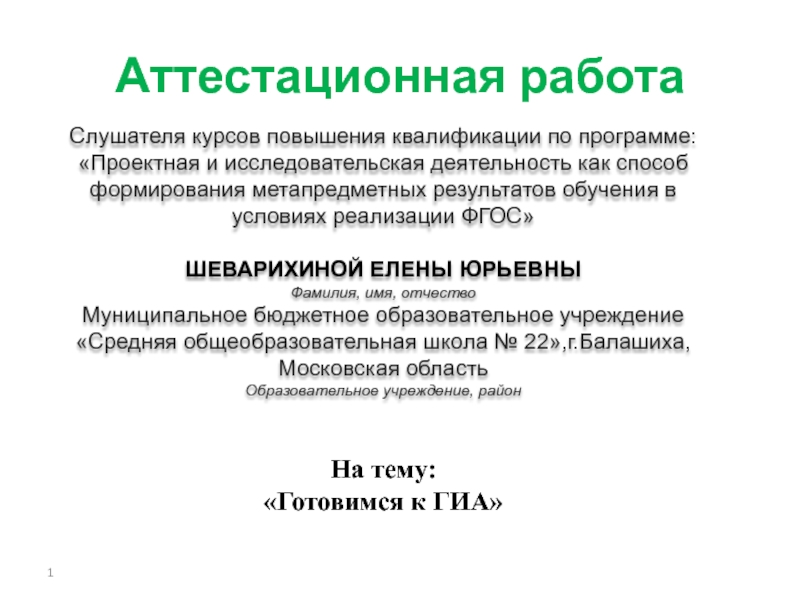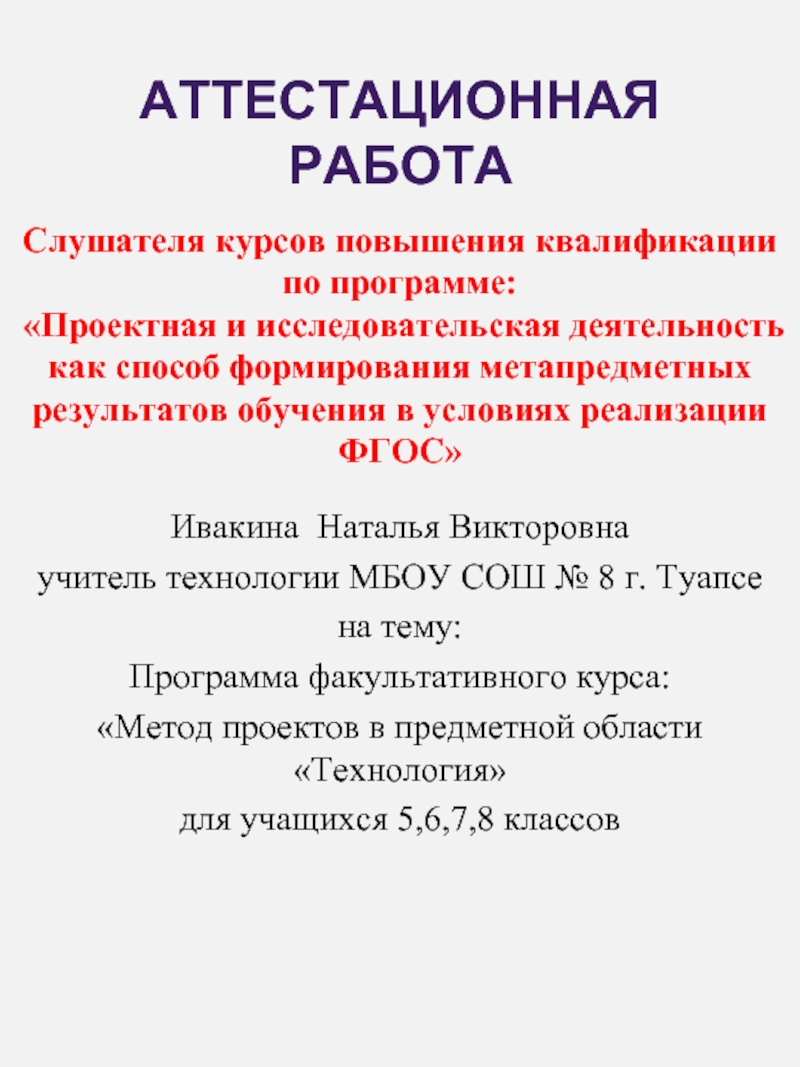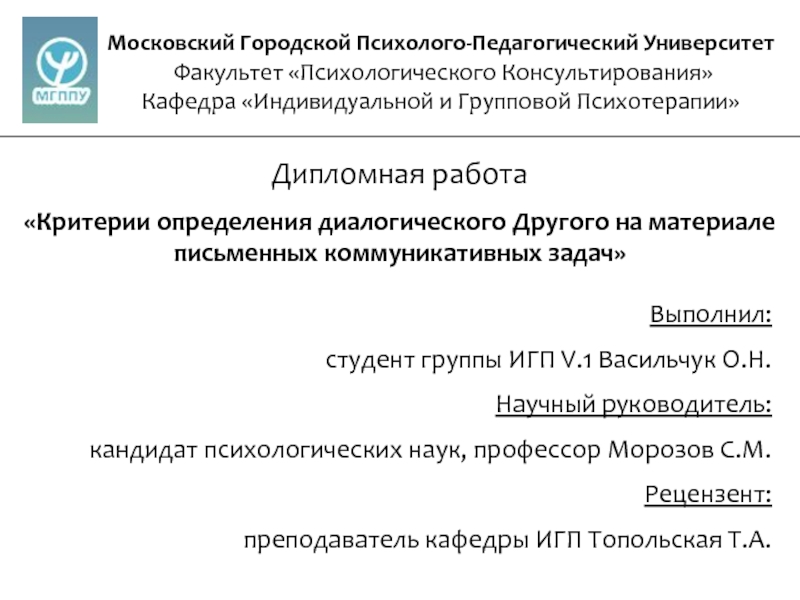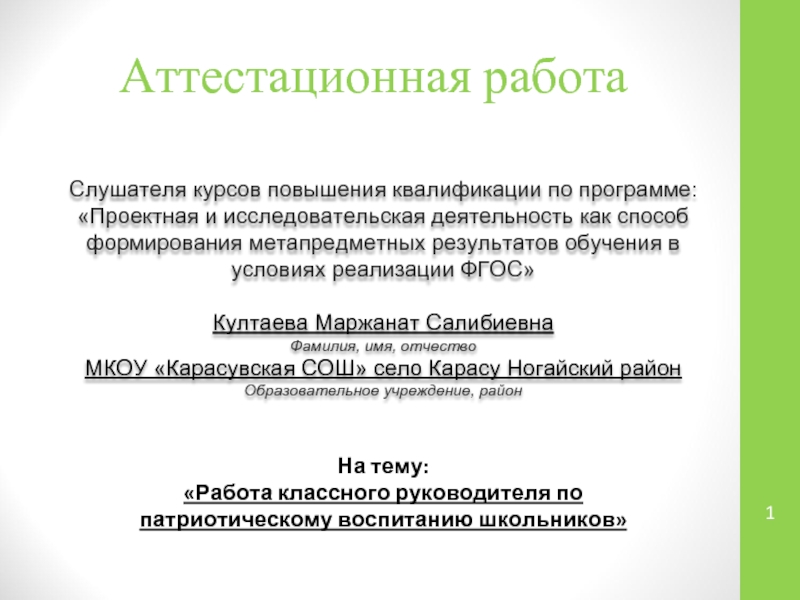- Главная
- Разное
- Дизайн
- Бизнес и предпринимательство
- Аналитика
- Образование
- Развлечения
- Красота и здоровье
- Финансы
- Государство
- Путешествия
- Спорт
- Недвижимость
- Армия
- Графика
- Культурология
- Еда и кулинария
- Лингвистика
- Английский язык
- Астрономия
- Алгебра
- Биология
- География
- Детские презентации
- Информатика
- История
- Литература
- Маркетинг
- Математика
- Медицина
- Менеджмент
- Музыка
- МХК
- Немецкий язык
- ОБЖ
- Обществознание
- Окружающий мир
- Педагогика
- Русский язык
- Технология
- Физика
- Философия
- Химия
- Шаблоны, картинки для презентаций
- Экология
- Экономика
- Юриспруденция
What a long, strange trip it’s been презентация
Содержание
- 1. What a long, strange trip it’s been
- 2. Outline of talk The context How
- 3. About 18 years ago, … People started
- 4. Context: The Web for humans HTML schema.org
- 5. Goal: Web for Machines & Humans schema.org
- 6. What does that mean?
- 7. How do we get there? How does
- 8. Going depth first Many heated battles Lot
- 9. Timeline of ‘standards’ ‘96: Meta Content Framework
- 10. But something was missing … Fewer than
- 11. ’07 - :Rise of the consumers Yahoo!
- 12. Yahoo Search Monkey Give websites control over
- 13. Google Rich Snippets: Reviews schema.org
- 14. Google Rich Snippets: Events schema.org
- 15. Google Rich Snippets Multi-syntax Adhoc vocabulary for
- 16. Situation in 2010 Too many choices/decisions for
- 17. Schema.org Work started in August 2010 Google,
- 18. Schema.org: Major sites News: Nytimes, guardian.com, bbc.co.uk,
- 19. Schema.org principles: Simplicity Simple things should be
- 20. Schema.org principles: Simplicity Can’t expect webmasters to
- 21. Schema.org principles: Simplicity Copy and edit as
- 22. Schema.org principles: Incremental Started simple
- 23. Schema.org Principles: URIs ~1000s of terms
- 24. + = USA schema.org
- 25. Schema.org Principles: Collaborations Most discussions on public
- 26. Schema.org Principles: Collaborations IPTC /NYTimes / Getty
- 27. Schema.org Principles: Partners Partner with Authoring platforms
- 28. Recent Additions From Nouns to Verbs: Actions
- 29. Recent Additions Scholarly work, Comics, Serials, …
- 30. Looking forward Schema.org is doing better than
- 31. Newer Applications: Knowledge Graph schema.org
- 32. Newer Applications: Knowledge Graph schema.org
- 33. Non search applications: Google Now User profile
- 34. Pinterest: Schema.org for Rich Pins schema.org
- 35. Reservations ➔ Personal Assistant Open Table website → confirmation email → Android Reminder schema.org
- 36. Vertical Search Structured data in search Web
- 37. Google Rich Snippets: Recipe View schema.org
- 38. Web scale vertical search Searching for Veteran friendly jobs schema.org
- 39. Web Scale custom vertical search Build your
- 40. Scientific Data Publishing US Govt alone spends
- 41. Case study: Clinical Trials Clinical
- 42. Case study: SkyServer Huge amount
- 43. First steps for scientific data
- 44. Concluding Structured data on the web is
- 45. Questions? schema.org
Слайд 2Outline of talk
The context
How did we end up where we
Schema.org
What it is, status of adoption
Schema.org principles, how does it work
Looking ahead
Next Generation Applications
schema.org
Слайд 3About 18 years ago, …
People started thinking about structured data on
A few people from Netscape, Microsoft and W3C got together @MIT
Trying to make sense of a flurry of activity/proposals
XML, MCF, CDF, Sitemaps, …
There were a number of problems
PICS, Meta data, sitemaps, …
But one unifying idea
schema.org
Слайд 7How do we get there?
How does the author give us the
Data Model: Graph vs tree vs …
Syntax
Vocabulary
Identifiers for objects
Why should the author give us the graph?
schema.org
Слайд 8Going depth first
Many heated battles
Lot of proposals, standards, companies, …
Data model
Trees
Syntax
XML vs RDF vs json vs …
Model theory anyone
We need one vs who cares vs what’s that?
schema.org
Слайд 9Timeline of ‘standards’
‘96: Meta Content Framework (MCF) (Apple)
’97: MCF using XML
’99 -- : RDF, RDFS
’01 -- : DAML, OWL, OWL EL, OWL QL, OWL RL
’03: Microformats
And many many many more … SPARQL, Turtle, N3, GRDDL, R2RML, FOAF, SIOC, SKOS, …
Lots of bells & whistles: model theory, inference, type systems, …
schema.org
Слайд 10But something was missing …
Fewer than 1000 sites were using these
Something was clearly missing and it wasn’t more language features
We had forgotten the ‘Why’ part of the problem
The RSS story
schema.org
Слайд 11’07 - :Rise of the consumers
Yahoo! Search Monkey, Google Rich Snippets,
Offer webmasters a simple value proposition
Search engines to webmasters:
You give us data … we make your results nicer
Usage begins to take off
1000x increase in markup’ed up pages in 3 years
schema.org
Слайд 12Yahoo Search Monkey
Give websites control over snippet presentation
Moderate adoption
Targeted at
Too many choices
schema.org
Слайд 15Google Rich Snippets
Multi-syntax
Adhoc vocabulary for each vertical
Very clear carrot
Lots of
Moderately successful: 10ks of sites
Scaling issues with vocabulary
schema.org
Слайд 16Situation in 2010
Too many choices/decisions for webmasters
Divergence in vocabularies
Too much fragmentation
N versions of person, address, …
A lot of bad/wrong markup
~25% for micro-formats, ~40% with RDFA
Some spam, mostly unintended mistakes
Absolute adoption numbers still rather low
Less than 100k sites
schema.org
Слайд 17Schema.org
Work started in August 2010
Google, Yahoo!, Microsoft & then Yandex
Goals:
One vocabulary
Make it very easy for the webmaster
It is A vocabulary. Not The vocabulary.
Webmasters can use it together other vocabs
We might not understand the other vocabs. Others might
schema.org
Слайд 18Schema.org: Major sites
News: Nytimes, guardian.com, bbc.co.uk,
Movies: imdb, rottentomatoes, movies.com
Jobs / careers:
People: linkedin.com,
Products: ebay.com, alibaba.com, sears.com, cafepress.com, sulit.com, fotolia.com
Videos: youtube, dailymotion, frequency.com, vinebox.com
Medical: cvs.com, drugs.com
Local: yelp.com, allmenus.com, urbanspoon.com
Events: wherevent.com, meetup.com, zillow.com, eventful
Music: last.fm, myspace.com, soundcloud.com
schema.org
Слайд 19Schema.org principles: Simplicity
Simple things should be simple
For webmasters, not necessarily for
Webmasters shouldn’t have to deal with N namespaces
Complex things should be possible
Advanced webmasters should be able to mix and match vocabularies
Syntax
Microdata, usability studies
RDFa, json-ld, …
schema.org
Слайд 20Schema.org principles: Simplicity
Can’t expect webmasters to understand Knowledge Representation, Semantic Web
It has to fit in with existing workflows
A posteriori ‘markup tools’ don’t work
Avoid KR system driven artifacts
Multiple domain / range for attributes
No classes like ‘Agent’
Categories and attributes should be concrete
schema.org
Слайд 21Schema.org principles: Simplicity
Copy and edit as the default mode for authors
It
Vocabularies
Authors only need to have local view
But schema.org tries to have a single global coherent vocabulary
schema.org
Слайд 22Schema.org principles: Incremental
Started simple
~ 100 categories at launch
Applies to
Add complexity after adoption
now ~1200 vocab items
Go back and fill in the blanks
Move fast, accept mistakes, iterate fast
schema.org
Слайд 23Schema.org Principles: URIs
~1000s of terms like Actor, birthdate
~10s for most
Common across sites
~10ks of terms like USA
External enumerations
~1b-100b terms like Chuck Norris and Ryan, Oklahama
Cannot expect agreement on these
Reference by description
Consumers can reconcile entity references
schema.org
Слайд 25Schema.org Principles: Collaborations
Most discussions on public W3C lists
Work closely with interest
Work with others to incorporate their vocabularies
We give them attribution on schema.org
Webmasters should not have to worry about where each piece of the vocabulary came from
Webmasters can mix and match vocabs
schema.org
Слайд 26Schema.org Principles: Collaborations
IPTC /NYTimes / Getty with rNews
Martin Hepp with Good
US Veterans, Whitehouse, Indeed.com with Job Posting
Creative Commons with LRMI
NIH National Library of Medicine for Medical vocab.
Bibextend, Highwire Press for Bibliographic vocabulary
Benetech for Accessibility
BBC, European Broadcasting Union for TV & Radio schema
Stackexchange, SKOS group for message board
Lots and lots and lots of individuals
schema.org
Слайд 27Schema.org Principles: Partners
Partner with Authoring platforms
Drupal, Wordpress, Blogger, YouTube
Drupal 8
Schema.org markup
News articles, comments, users, events, …
More schema.org types can be created by site author
Markup in HTML5 & RDFa Lite
Will come out early 2015
schema.org
Слайд 28Recent Additions
From Nouns to Verbs: Actions
Object → potential actions
Constraints on actions
E.g.,
Introducing time: Roles
E.g., Joe Montana played for the SF 49ers from 1979 to 1992 in the position QuarterBack
schema.org
Слайд 29Recent Additions
Scholarly work, Comics, Serials, …
Communications: TV, Radio, Q&A, …
Accessibility
Commerce: Reservations
Sports
Buyer/Seller,
Bibtex
The ontology is growing …
~800 properties
~600 classes
schema.org
Слайд 30Looking forward
Schema.org is doing better than we expected
Thanks to millions of
But this is not the final goal
Just the means to the next generation of applications
First generation of applications
Rich presentation of search results
Many new applications
Related to search and beyond
schema.org
Слайд 33Non search applications: Google Now
User profile
(google.com/now/topics)
+
structured data feeds
schema.org
Слайд 35Reservations ➔ Personal Assistant
Open Table website → confirmation email → Android
schema.org
Слайд 36Vertical Search
Structured data in search
Web search: annotate search results
OR
Filtering based
Only in specialized corpus
Ecommerce, real estate, etc.
How about filtering based on structured data across the web?
schema.org
Слайд 39Web Scale custom vertical search
Build your own custom vertical search engine
Google
You specify the schema.org restricts
APIs to help build your own UI
Searches over all pages on the web with a certain schema.org markup
Demo
schema.org
Слайд 40Scientific Data Publishing
US Govt alone spends over $60B/yr on scientific research
Primary
Most of the data is thrown away
All that is published are papers
We would like the data published in a easily reusable form
schema.org
Слайд 41 Case study: Clinical Trials
Clinical trials
4000+ clinical trials at any
Almost all the data ‘thrown away’
All that gets published is a textual ‘abstract’
Many of the trials are redundant
Earlier trials have the data
Assumptions, etc. cannot be re-examined
Longitudinal studies extremely hard, but super important
Having all the clinical trial data on the web, in a common schema will make this much easier!
schema.org
Слайд 42 Case study: SkyServer
Huge amount of astronomy data
Jim Gray, NASA
Has changed the way astronomy research takes place
Students in Africa getting PhDs without leaving Africa!
Radio/Ultra-violet/Visible light data easily brought together
Caveats
SQL biased, not distributed, not scalable
All normalization done by hand, once
Small number of data sources
But shows that it can be done …
schema.org
Слайд 43 First steps for scientific data publication
OPTC directive for data
Formation of new ‘Data Science’ institute inside NIH
Seeing traction in scientific data on the web
Lot of interest in creating schemas
Public repositories for scientific data starting
schema.org
Слайд 44Concluding
Structured data on the web is now ‘web scale’
Schema.org has got
The most interesting applications are yet to come
schema.org
